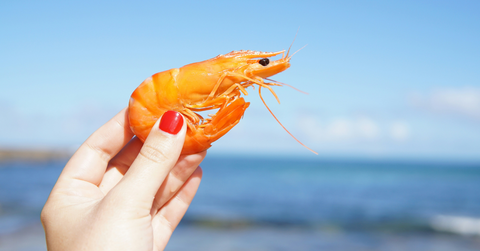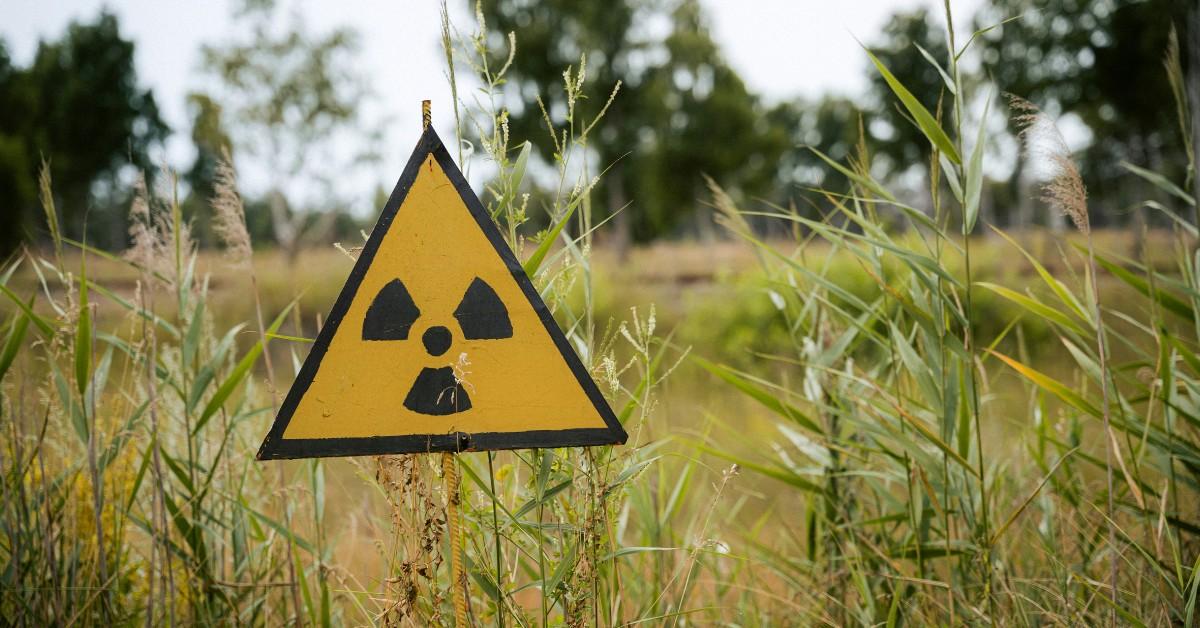No, Radioactive Shrimp Won’t Give You Super Powers, but It May Give You Something Else
Radioactive shrimp sounds like something out of a comic book, but in some states it's a real concern.
Published Aug. 20 2025, 11:15 a.m. ET

When we think of things being radioactive, most of the time it's due to a disaster like the nuclear meltdown at Chernobyl. However, not all radioactive things happen due to a big and extraordinary event. Sometimes all it takes is a little cross contamination for something to become radioactive, like exposure to radioactive materials through the dirt, water, or air.
That's exactly what happened to some shrimp that made headlines in August 2025 after it was contaminated by Cesium-137.
Unfortunately, officials didn't realize that the shrimp had been contaminated until after it had hit the shelves at several stores across the U.S., triggering a recall and prompting many people to wonder what exactly happens when you eat radioactive shrimp. While the question made for some great jokes — no, you will not turn into the shrimp version of Spiderman — the reality of what can happen proved to be a sobering one.
You can find out more about what will happen below.

What happens if you eat radioactive shrimp?
Cesium-137 (Cs-137) exposure can cause an increased risk of cancer, according to health officials, who said in a statement reviewed by NBC News. Even low doses can increase your risk, "resulting from damage to DNA within living cells of the body."
The statement went on to explain that those cancer risks could be even higher for anyone who eats radioactive shrimp and then has additional exposure to radiation, like the kind they would experience in conjunction with medical procedures and testing.
Radioactive shrimp was sold at Walmart.
NBC News says that shrimp that had come into contact with Cs-137 via shipping containers was sold in Walmart stores across 13 states in locations that include Florida, Ohio, Pennsylvania, and Texas. The breaded shrimp products became contaminated after they were exposed to the Cs-137, which the Environmental Protection Agency (EPA) describes as being "a soft, flexible, silvery-white metal that becomes liquid near room temperature."
This radioactive version of Cesium is often used in medical devices, which may have been transported in the containers at some point before the shrimp was shipped in them.
NBC News says that the U.S. Customs and Border Protection are the ones who made the discovery, which they then immediately alerted the U.S. Food and Drug Administration (FDA) to. Additional containers that tested positive for the same radioactive material were later denied entry into the U.S.
Walmart's frozen shrimp recalled after it tested positive for Cs-137.
Walmart has issued a recall of the contaminated shrimp, which was sold under the Great Value name and processed by PT. Bahari Makmur Sejati (which also does business as BMS Foods).
The following lots are included in the August 2025 recall:
- Lot code: 8005540-1, Best by Date 3/15/2027
- Lot code: 8005538-1, Best by Date 3/15/2027
- Lot code: 8005539-1, Best by Date 3/15/2027
The shrimp were sold across 13 states. You can find a full list of the locations by visiting the FDA website.
The recall has instructed customers not to consume the shrimp, and to instead throw it away at once. Anyone who has already eaten the shrimp and who is worried about their exposure to Cs-137 is being instructed to contact their healthcare providers for more information.
Fortunately, it doesn't seem like there have been any illnesses or injuries reported as a result of this recall as of the time of publication.